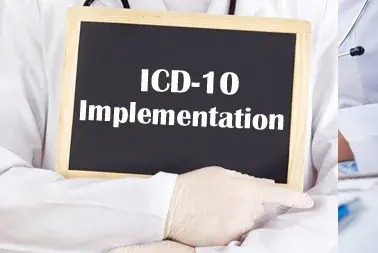Hospitals and medical practices across the country have migrated to ICD-10 medical coding and CMS recently released an infographic to help healthcare providers monitor their progress. In this update, CMS reiterates that providers need to assess their ICD-10 implementation, address challenges, and maintain progress, and provides guidelines to assist them in the matter.
The first thing that CMS recommends is assessing and analyzing ICD-10 progress by identifying key performance indicators (KPIs). Healthcare providers can work with their billing and coding service provider to identify key performance indicators (KPIs) and create baselines for analysis for each KPI. Important KPIs include:
- days to final bill
- days to payment
- claims acceptance and rejection rates
- claims by denial rate
- payment amounts
- reimbursement rate
Many health care providers rely on dedicated medical coding services to submit claims for reimbursement. A professional medical coding company can help healthcare providers track a majority of KPIs addressed in the CMS fact sheet and identify specific issues. This will help physicians quickly address challenges related to productivity, reimbursement, and claims submission.
After identifying KPIs, providers would need to create a baseline for each KPI that is relevant to track and the specific challenges they have with ICD-10. CMS recommends that healthcare providers use points of comparison from pre- and post- October 1, 2015 to evaluate ICD-10 progress. According to CMS, comparing pre- and post- baselines by month would be practical because seasonal changes in statistics may affect the results.
As the next step, CMS recommends that healthcare providers develop ways to collect and deal with the findings. They need to verify their clinical documentation and code selection. They also need to check their software system to see that all upgrades are in place. They would then have to work with the payers to address any medical billing issues.
Finally, to maintain progress, CMS recommends that health care providers keep their coding tools up-to-date and review the ICD-10 coding guidelines regularly.
Partnering with a reliable medical coding company is one of the best ways for health care organizations to maintain their ICD-10 progress. These companies have experienced AAPC-certified medical coders who are well-trained in ICD-10-CM/PCS codes and can assign the most appropriate codes for every encounter. They would also provide comprehensive medical billing services, with claim auditing and follow up with insurance companies to ensure maximum reimbursement. With a reliable service provider, physicians are assured of methodical strategies for identifying and resolving specific issues relating to ICD-10 implementation.




